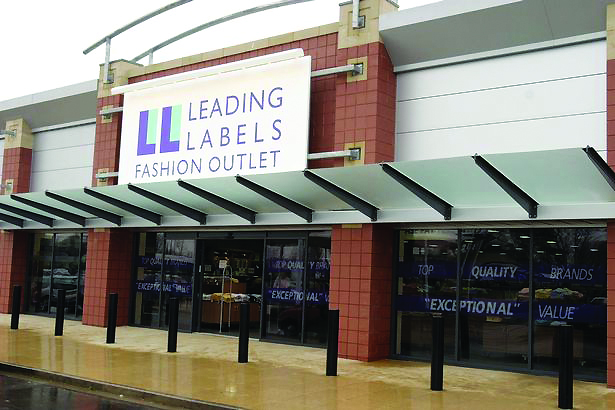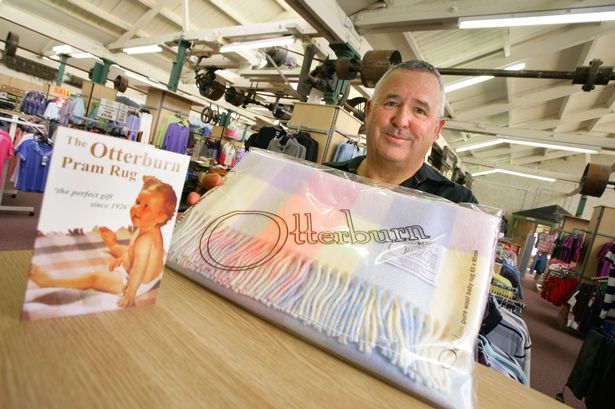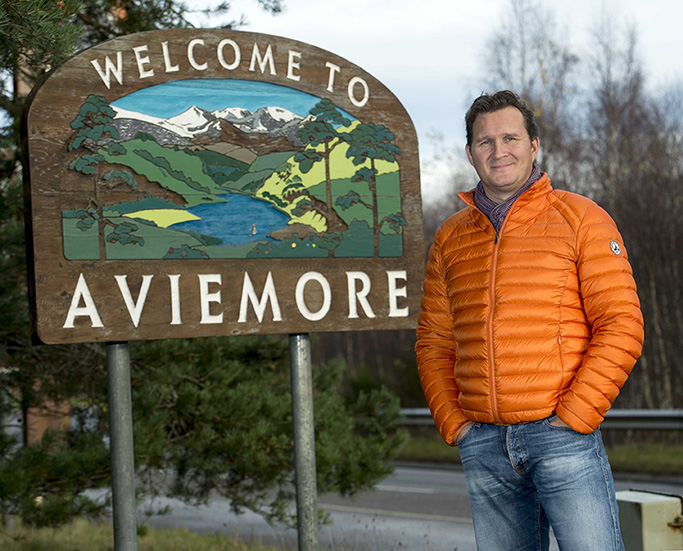Interview with Mike Thornwaite, MD of Leading Labels

We chatted with Mike Thornthwaite, MD of Leading Labels. Leading Labels is a multi-branded clothing retailer with 25 years’ experience selling in out of town outlets across the UK and Ireland. With 18 well-established stores, it provides a range of quality branded clothing including; Weird Fish, Farah, Meyer, Ben Sherman, Wrangler, Lazy Jacks, Nomads, Tigi and Roman Original. Its large modern stores are located in shopping outlets, garden centres, department stores and other prime locations. We discuss how Mike came to join Leading Labels, his views of fashion and retail, and what the future holds Q. How long have you held your current job? Mike: I qualified as a management accountant and knew that I wanted to work in a commercial environment. I worked for a number of years in ATS in their tyre operations, which, being a motor fan, I loved. However, a company reorganisation and relocation stimulated me to look for a change. The retail market has always interested me because of its changing nature – and Leading Labels attracted me as a growing concern. I joined in 2002, becoming Financial Director in 2006, and haven’t look back – I am now involved in the business across all operations and enjoy every aspect. Q. What attracted you to a career in retail? Mike: I think in any career you have to love what you do and have a genuine interest in your product. My interest in retail brands started at ATS – and has continued to grow with Leading Labels and all of our fashion brands. I love the changing dynamics of the retail industry, it doesn’t stand still and you have to keep one step ahead in the business. Q. How do you see the future of retail? Mike: There has definitely been a change in retail over the last few years. It’s now all about the customer experience, which means retailers are having to do things differently. It is no longer just opening the doors to a regimented box with standard fixtures and fittings and the products on display. Today it is all about display and customer service – theatre and experience are demanded and more engagement. The merchandising has to be clever and tell a story, enticing customers in to browse – and hopefully buy. For us at Leading Labels it means refurbishing, refitting and thinking about events in store, such as fashion shows and styling ideas. Online definitely has its place, but I think customers are starting to go back into store to ‘try and buy’ – to feel the materials and try sizes. This is certainly true for our market, maybe not so for tech items where you can compare features online and then buy at the lowest price. Q. How can technology help? Mike: I think technology can help retailers, but you have to pick the right technology for the job, to make sure it makes a difference. I am not a driver of new developments for tech’s sake, but if I can see benefits then I think it can add value to a business. For example, I can see how Eurostop’s MyShoppr can really benefit a store and its customers and is definitely something we might look at. We are always mindful of the demographic of our customers when we change anything, to make sure it is right for them. What piece of tech couldn’t you live without? Mike: Definitely my iPhone. It’s great, I can go out of the office and still function businesswise, so I can keep an eye on things. Skype and conference calls are also really useful to keep connected. However, like all of us, I have to make sure I balance with when I do want to be offline, like on holiday.
Interview with Euan Pringle, owner of Otterburn Mill

We chatted with Euan Pringle, owner of Otterburn Mill. Situated in Northumberland countryside, the 18th century mill is a ‘destination’ retail outlet, selling high quality textiles and country woollen clothing. It also prides itself on providing a unique customer experience, boasting many original features, archive material, tools and machinery, on show to the public. We discuss how Euan came to the Mill, his views of fashion and retail, and what the future holds. Q. How long have you held your current job? Euan: I have always worked in textiles. In the 1980s, as MD of the family textile operation with modern retail and manufacturing, I travelled the world to promote the business, and in the 1990s, we sold the business on. Sadly the brand suffered when the textile industry took a downturn a few years later. In 1995 I found the derelict Otterburn Mill building located on a windy moor on the tourist route between Scotland and England. I redeveloped the site to what it is today – and I am still in the driving seat over twenty years later. Q. What attracted you to a career in retail? Euan: I have always loved the textile retail business and loved being in the working mill from my early working years. I enjoy getting the seasons’ colours ahead of time, buying to meet the trends months ahead and finding new suppliers to fil the gaps when suppliers go off-piste. Q. How do you see the future of retail? Euan: I think the trends in retail are starting to change and things definitely have a more positive outlook. In the last 10 years, the trend was for the big investment companies to buy up the big chains, slash prices and, I think, caused a lot of damage to the retail sector. Now we are seeing these big chains fall by the wayside as the future of the large stores has gone, which leaves space for more interesting themed retail places. …there is always a place for retailers that can provide a great customer experience and product We have seen the demise of the high street, with property companies not investing in the high street buildings, this, plus high government taxes, have squeezed out the smaller retailers. However, I think there is always a place for retailers that can provide a great customer experience and product and I am optimistic we will see a change in the next six months to a year, once the casualties of the big discounters have gone. The retail market is turning the corner and I think the outlook is positive over the next 2- 3 years. Q. How can technology help? Euan: I think there is a lot of tech at the moment, and some of it is helpful and some of it is not. At the end of the day, your shop floor staff can really make the sale – they can help customers find the missing part of the jigsaw – so technology needs to enable your staff. Brands are starting to realise that stores are the key to brand loyalty, not just selling online. At the end of the day people want to go out and have fun – and enjoy the experience of shopping. Shopping centres are big and glitzy, but they need to refresh the décor and themes to keep customers interested. At the same time, I think if you aren’t using tech as a retailer then you will suffer. What piece of tech couldn’t you live without? Euan: Definitely my iPhone. It’s my lifeline, particularly recently when our email service was down. I do everything on it – I know how to use it and certainly won’t be looking to change!
Interview with Tom Jeffrey, Head of Ecommerce at Jules B
We chatted with Tom Jeffrey, who is Head of Ecommerce with award-winning retailer Jules B about his career to date, his views of fashion and retail, and, what the future holds. Q. How long have you held your current job? Tom: I started with Jules B 10 years ago, in the fledgling ecommerce department. There were just two of us in those days, now we have a team of 25, which is a reflection of just how important ecommerce is to the business. Q. What attracted you to a career in retail? Tom: Retail can be fun and at the time, ecommerce was very new and exciting. These days fashion retail has become much more volatile and competitive, but it is always fast moving and constantly challenging, which keeps me on my toes. Q. How do you see the future of retail? Tom: As shoppers become ever more savvy and demanding, and the market gets even more competitive, the successful retailers will be those that stand out from the crowd. To do this you need a point of difference, something that is unique to your brand. It is the very essence of retail, you need to have a nose for what people what, you need to be able to spot trends and the up and coming designers that can deliver on those trends. When you pick your brands you need a mix that is unique to you, some commercial and some that are niche but avoiding the brands that are over-saturated. Q. How can technology help? Tom: It is important for retailers to focus on what they do, and do it well across all the different channels. They need to ensure that the customer experience is good and consistent both instore and online. There are a lot of gimmicky tools and apps out there, but most of them simply aren’t viable. My advice is to not get carried away with fancy technology but make sure that your back office systems can manage your stock efficiently, so that you are able to meet your customer demand and have the information available to your staff to deliver a great customer experience. Q.What piece of tech couldn’t you live without? Tom: Without doubt my iPhone X. As well as all my personal stuff, thanks to the iPhone I can do my job pretty much from any location.
Interview with Chris Tiso, CEO of Tiso Group

We chatted with Chris Tiso, CEO of Tiso Group, about the challenges for retail and his views on how retailers can meet them. Tiso is Scotland’s Leading Outdoor Clothing & Equipment Retailer, founded in 1962 by proficient mountaineer Graham Tiso, with his wife Maude in Edinburgh. In 2014 JD Sports invested in Tiso Group and the company has since grown to become a household name, with 21 outlets in Scotland, England and Northern Ireland, including the George Fisher business in Keswick. We discuss how Chris came to be CEO, his views of retail and his particular sector and what the future holds. Q. How would you describe your current role? Chris: My role is varied involving the day to day decisions as well as strategic. While Tiso Group is not a huge business, it is wide and varied, with our four fascia and multiple product categories – Tiso outdoor & mountain, Alpine Bikes, Blues the Ski Shop and George Fisher, our iconic outdoor store in the Lake District. My energies and focus are both strategic and operational, spread across the business in marketing, product innovation and business development. I have a clear vision for the future of the company and that needs to be articulated and translated into a deliverable plan. An important part of my role is also to support and facilitate the team to take ownership & implement the plan. Q. How long have you held your current job? Chris: I had been working on the retail side of the business gaining valuable experience when my father’s accident accelerated me into the position of CEO at just twenty-one, and I haven’t looked back. Q. What do you love about retail? Chris: Today presents challenging times for retail and there is no doubt that it’s a difficult business. However, what I do love is the sector that Tiso operates in. My family is passionate about the outdoors – it’s our history and great to be involved in a business which encompasses that – from watersports to ski-ing and biking. It’s both fun and close to my heart. I see myself as quite creative and retail gives you an opportunity to be just that. Not just within the store environments and customer journeys, but also developing brands. Our business is about eliciting emotional responses from customers. I grew up in a generation when people lived to work, but this has changed now to a culture of work to live. People now work hard to save money and buy the skis, tent or bike, to get the experience that they want. Going into the outdoors makes them feel alive. I like to think that we are in the business of evoking that emotion. We are helping people develop or follow their passions for the things that define them. We are part of their adventure and their story and that’s exciting and very rewarding. Q. What do you thinks is the future of retail? Retail has certainly got more competitive – and I think it will only get more so. So it’s a challenge and an opportunity. It may be a cliché, but the tougher something is, the more it brings out the best. It forces companies like us to be self-scrutinising and critical, as well as imaginative and creative about how we evolve to remain relevant to changing consumer demands and expectations. Chris: The customer wants different things and experiences, and in different ways, and we’ve got to meet those expectations in order to survive. We have to be original and good at what we do – and that is a real call to action. Everything is fast paced and as a business we have to work hard to keep up. We have to be very clear about what we stand for, what we do and why we do it – and be confident that we are doing it as well as we possibly can, because the alternative is not good enough. These challenges create exciting opportunities to do things differently. Q. How can technology help? Is there something the industry needs Chris: I’m only a fan of technology when it has the ability to enhance our lives, not technology for tech’s sake. I apply the same principle to our business. I am excited by technology that can help us. I prefer simple solutions to complex and I always ask; what can it do to improve the customer journey, enhance the customer experience or enable us to run our business better? Q. What piece of tech couldn’t you live without or trying out? Chris: There’s no tech that I couldn’t live without – in fact I am happy to take off into the wilds with no tech at all. But I am looking forward to getting a dashcam – I spend a lot of time on the road and sometimes shocked by what I see, recording it makes me feel more in control of the situation.
